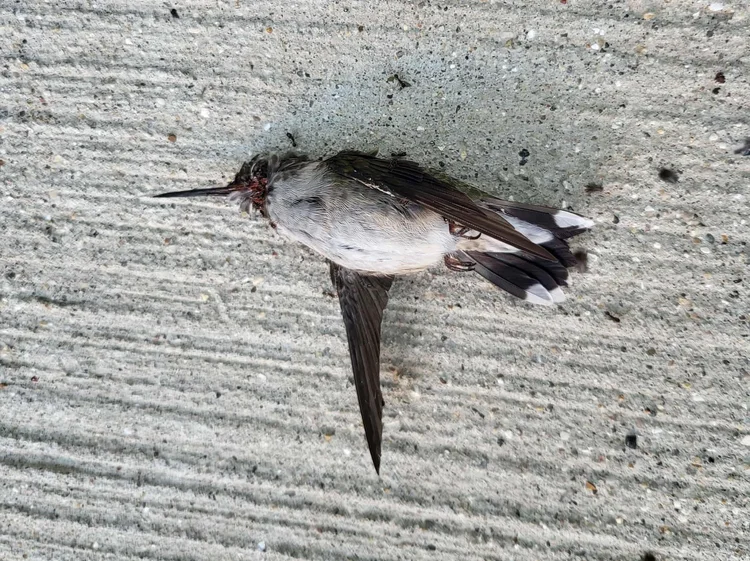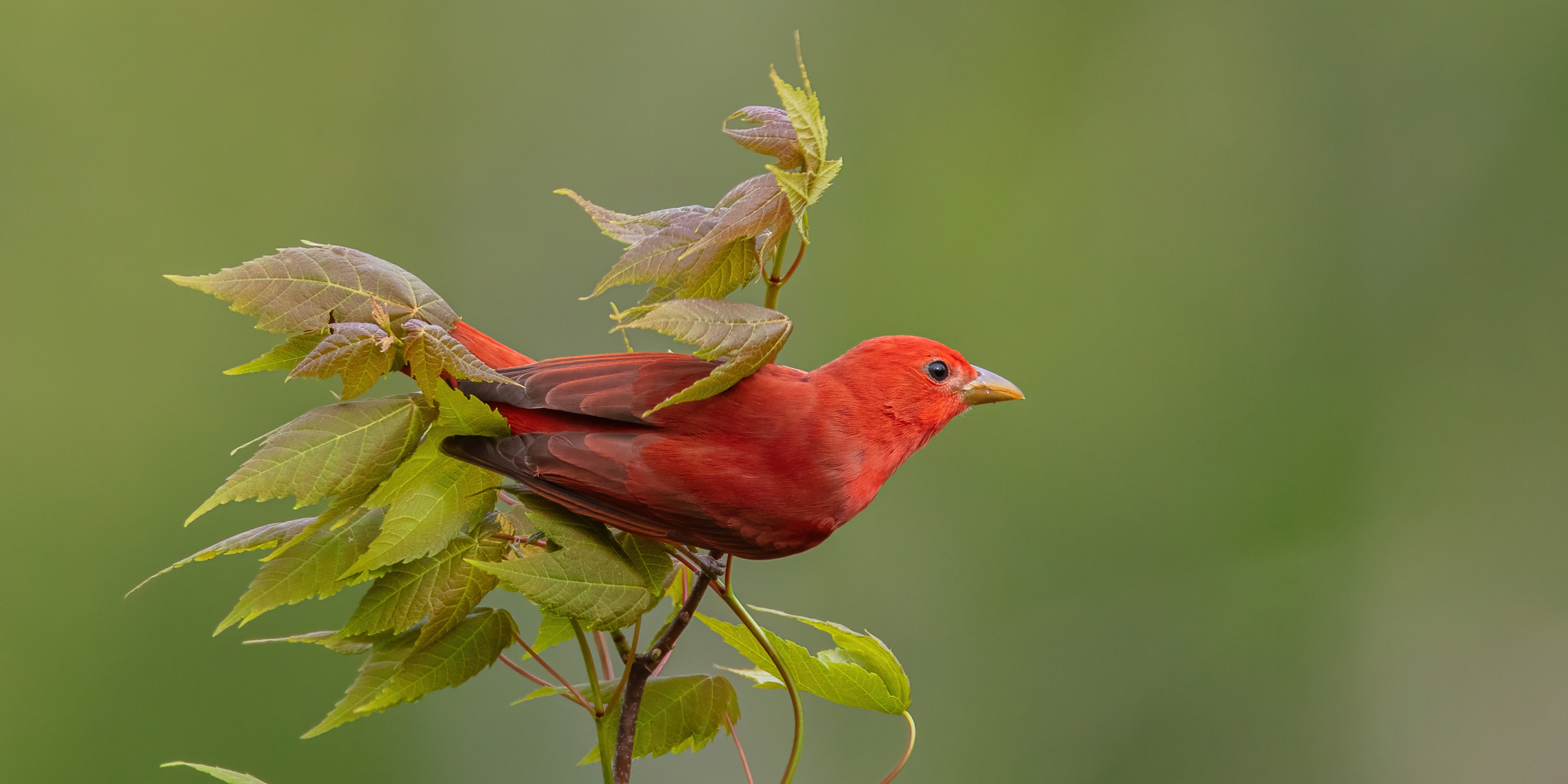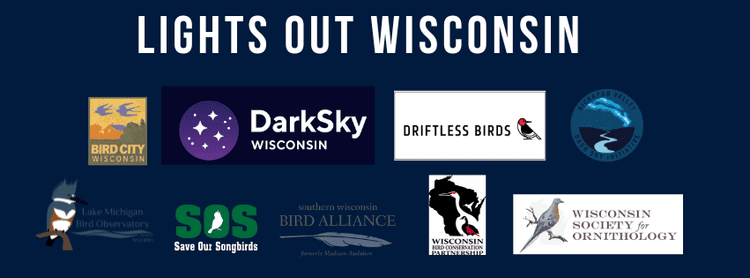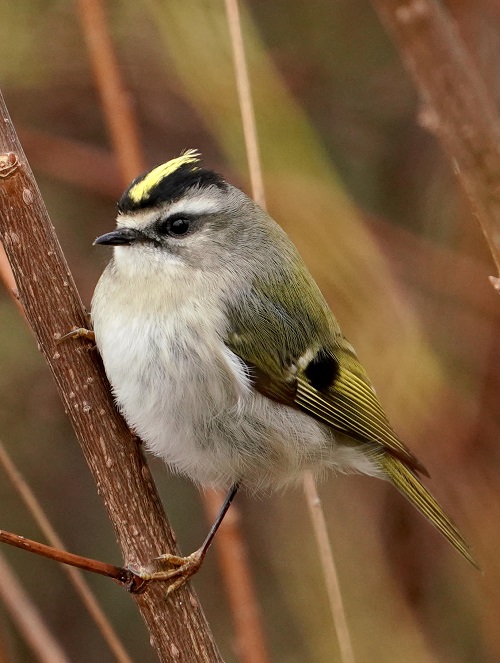News Release Oct. 6, 2025
Turn off nonessential outdoor lights from 11 p.m. to 6 a.m. to save birds
Contacts: Craig Thompson, Lights Out Wisconsin and Driftless Birds, thompson.crgd@gmail.com, 608-406-8129; and Carol Wesley, Lights Out Wisconsin and Kickapoo Valley Dark Sky Initiative, carolwjean124@gmail.com.

Extremely high levels of migrating birds are expected over Wisconsin Tuesday night, Oct. 7, according to BirdCast.info. Turn off nonessential outdoor lights from 11 p.m. to 6 a.m. to avoid luring birds to land before they reach natural areas where they face fewer daytime threats.
VIROQUA - White-hot levels of bird migration are forecast for Wisconsin on Tuesday night, Oct. 7, and the fledgling Lights Out Wisconsin coalition is calling for everyone to turn off nonessential outdoor lights from 11 p.m. to 6 a.m. to save birds.
Most migrating birds fly at night, and glow from lights can disorient them and attract them to land in populated areas where they face greater threats, particularly windows. Birds looking for food in daylight may hit windows when they see trees and other habitat reflected in building windows or visible through glass on the other side of a building.
Nearly 19 million birds are forecast to fly over Wisconsin overnight Tuesday, Oct. 7. Purdue University’s AeroEco Lab has issued a high alert for Wisconsin except for in the northwestern corner where there is a medium alert, says Craig Thompson of Lights Out Wisconsin and the Driftless Birds.
“Birds are on the move and we can help make their migration safer by turning out nonessential lights at nighttime,” Thompson says. “We can also take a few other steps to help, like treating our worst problem window for birds, keeping our cats indoors, filling bird baths with clean water, and putting high fat foods in feeders, like black oil sunflower seeds.”
Wisconsin bird groups and dark sky supporters are forming the Lights Out Wisconsin coalition to mobilize publicizing Lights Out Alerts and work together on other ways to help reduce light pollution and window collisions. The group’s website can be found at: lightsoutwi.org and lightsoutwisconsin.org.
The AeroEco Lab and collaborators use weather radar and other tools to forecast and issue alerts when the relative intensity of migration in a local area, and thus the risk to birds, is high.
Studies show window collisions kill billions of birds a year in the U.S. and are one major reason why 30% of North American birds, or nearly 3 billion, have vanished since 1970, according to a landmark 2019 study.

Lights Out Alerts are issued by Purdue University’s AeroEco Lab. High levels of bird migration are expected across most of Wisconsin and medium levels in northwestern Wisconsin on Tuesday night, Oct. 7, raising risks for birds. Graphic: AeroEco Lab.
Bird-window collisions can happen any time of the year but particularly during fall migration. More birds are making the journey, including inexperienced birds hatched during the summer making their first flight. Fall migration is typically regarded as the period between Aug. 1 and Nov. 15.
Treating windows that birds fly into is a key step to making migration safer for birds. Research shows that nearly half of bird-window collisions occur at home, and there are many solutions ranging from do-it-yourself fixes such as using a dry bar of soap to draw lines or patterns on the outside of problem windows to applying commercial products.
Switching exterior lighting to LED bulbs with a Kelvin rating of 2200 (amber light) for outdoor fixtures will eliminate the glare from blue light for people, make the skies safe for birds, and are more energy efficient and will save you money, says Carol Wesley of Lights Out Wisconsin and Kickapoo Valley Dark Sky Initiative.
In addition to the Driftless Birds and Kickapoo Valley Dark Sky Initiative, initial coalition members include the DarkSky Wisconsin chapter, Lake Michigan Bird Observatory, SOS Save Our Songbirds, Southern Wisconsin Bird Alliance, Wisconsin Bird Conservation Partnership and Wisconsin Society for Ornithology. The group will be seeking other partners in coming months.



